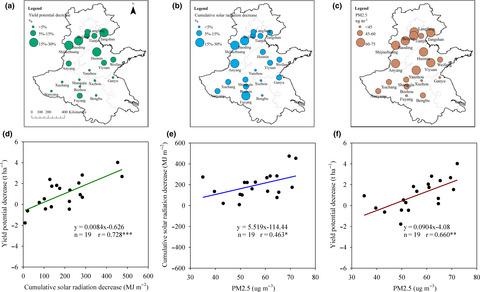当前位置:
X-MOL 学术
›
Food Energy Secur.
›
论文详情
Our official English website, www.x-mol.net, welcomes your feedback! (Note: you will need to create a separate account there.)
Solar dimming decreased maize yield potential on the North China Plain
Food and Energy Security ( IF 5 ) Pub Date : 2020-08-09 , DOI: 10.1002/fes3.235 Qingfeng Meng 1 , Baohua Liu 1 , Haishun Yang 2 , Xinping Chen 1, 3
Food and Energy Security ( IF 5 ) Pub Date : 2020-08-09 , DOI: 10.1002/fes3.235 Qingfeng Meng 1 , Baohua Liu 1 , Haishun Yang 2 , Xinping Chen 1, 3
Affiliation

|
Solar dimming has been increasing in rapidly developing regions (China and India) and threatening food security. Although previous studies have summarized the effects of climate change‐associated increases in temperature on agriculture, few have examined the effects due to solar dimming. Here, we analyzed the effects of solar dimming on maize on the North China Plain (NCP). It is reported that solar dimming intensified and maize yield potential decreased since the 1960s. The total decrease in solar radiation for the whole maize growing season of this period was 17%, and solar dimming explained 87% of the decrease in yield potential. Meanwhile, solar dimming was closely related to the level of anthropogenic fine particulate matter such as PM2.5. The PM2.5 concentration in the NCP averaged 56 μg/m3 in 2014 and 2015, which was approximately three times greater than the global mean. Our results suggested that a 10 µg/m3 increase of PM2.5 concentration in this region was together with a 55 MJ/m2 decrease in solar radiation. Solar dimming threatened food security in the NCP and probably in other areas of the world and has profound implications for ongoing and future efforts such as Clean Air Action and other measures.
更新日期:2020-08-09



























 京公网安备 11010802027423号
京公网安备 11010802027423号